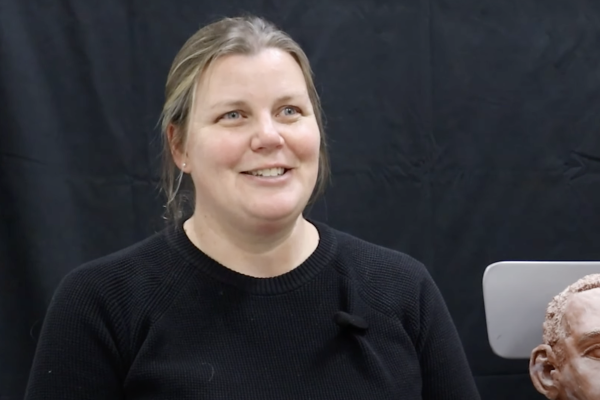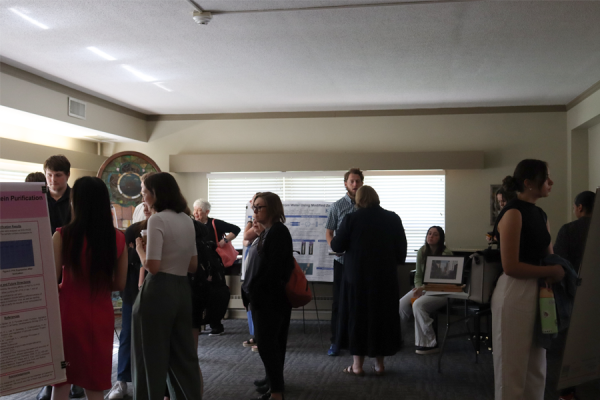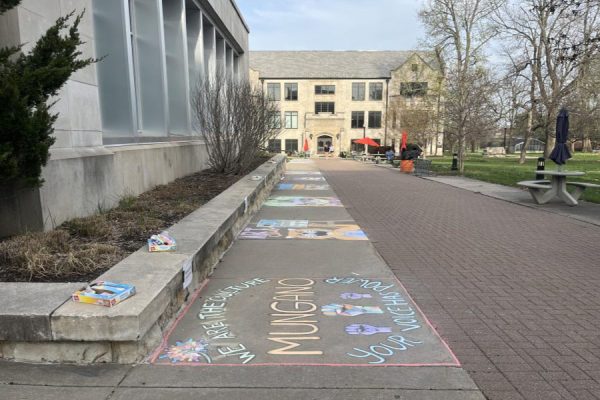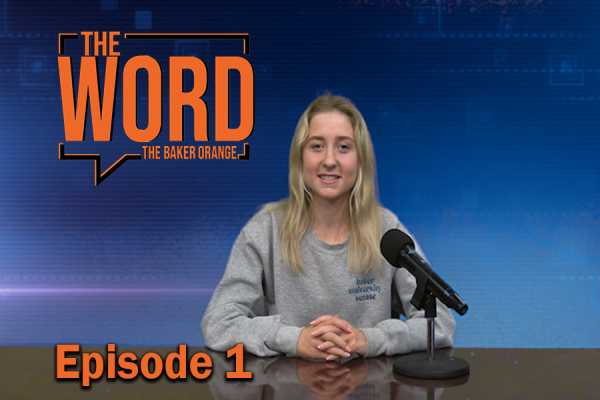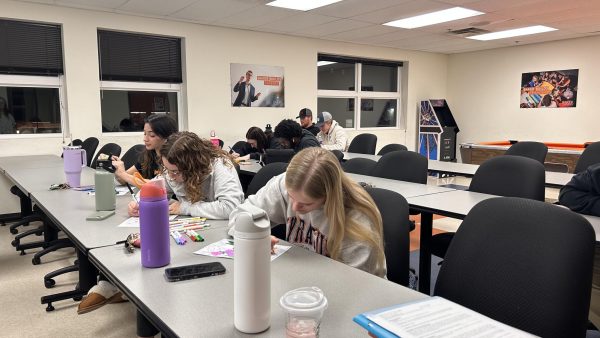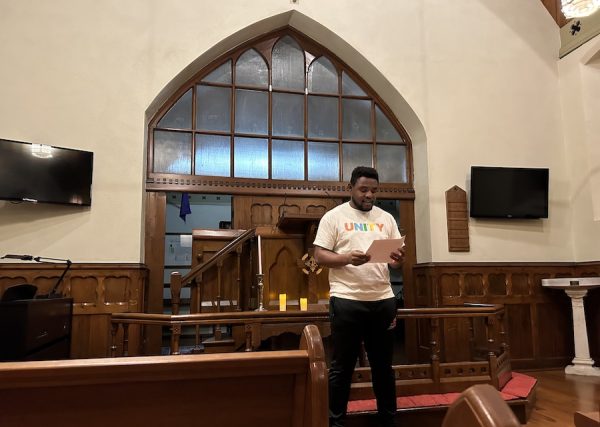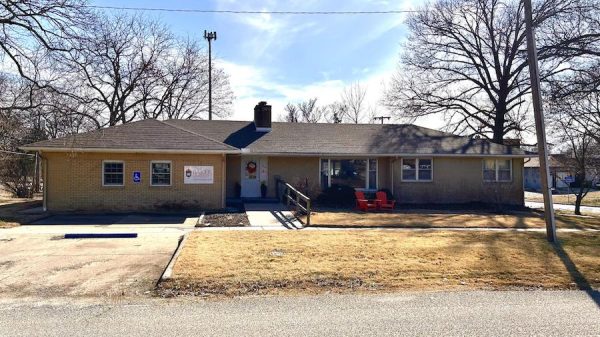Retiring biology professor serves as mentor
In 1976, Professors of Biology Darcy Russell and Cal Cink shared their first day at Baker University, Russell as a student and Cink as a professor.
Over time, he became her mentor, friend and co-worker. Russell told him that he was not allowed to retire without her, but after 38 years of teaching, he will be leaving Baker’s campus.
“For me, I’m still in denial about his retirement,” Russell said. “When someone’s mentored you, so beautifully, for so long, there’s a sort of fear of what it will be like without him here. Who will I talk to and brainstorm ideas with? He’s always been right next door to me, and I don’t know what it’ll be like when he’s not.”
Before every class, Cink tells his students a joke to help them relax and find entertainment. He says some are groaners, some are pretty terrible and some are subtle, but over the years students have come to demand them. But after a while, Cink realized that he was beginning to forget the punch lines. It was then that he started contemplating retirement.
“At some point in your life, you decide that maybe it’s time for someone younger,” Cink said. “On one hand, you have 38 years of experience that you want your students to benefit from, but on the other hand, you want them to get someone who has new ideas.”
In Russell’s words, Cink is not only a professor, but a scholar as well. He has won many awards in his time at Baker, both for his teaching and his scholarly work. He has received the Kopke Award for Teaching, the highest award that Baker offers its instructors, the Distinguished Scholar Award for his publications and a service award from the Kansas Ornithological Society for his work with science.
Serving both Baker and the community, Cink has done extensive research and work with the Baker Wetlands. The wetlands, or as Cink calls them, “Baker University Campus North,” gives students a chance to have hands-on research with an ecosystem and the way it changes.
Associate Professor of Biology Erin Morris believes that his work with the wetlands was crucial in educating students on the complexity of an ecosystem.
“He’s been critical for keeping students connected to the wetlands and Baker prairie,” Morris said. “He teaches the majority of the field biology courses and helps keep that part of the biology program alive.”
Cink first came to Baker while finishing his Ph.D. at the University of Kansas. There was a job opening for a teaching position for a professor on sabbatical, and Cink thought it would be a good teaching experience. He believed he would spend a year at Baker, get the experience under his belt and then apply for another job.
Through his first year at Baker, he came to realize that he enjoyed teaching more than he thought. And when that teacher didn’t return from his sabbatical, Cink decided to stay.
“I enjoy seeing students’ success,” Cink said. “Many of the students that I’ve taught went on to careers in medicine, dentistry or became teachers or you name it; all types of careers. It’s always been interesting to start with a freshman in a general biology class and see their development through all four years at Baker and see them go out and make their own contributions as a scientist. It’s been rewarding.”
Russell pointed out that Cink has done a lot for his students in his time at Baker University. She says he’s a funny yet humble and quiet man who does the right thing in teaching his students more than just biology.
“I think he has modeled the liberal arts philosophy, because he is an excellent scientist and he loves and is passionate about science, but he also enjoys the arts,” Russell said. “He’s one of those truly well-rounded people and that’s what liberal arts education is about. I think he’s modeled that in front of his students and his colleagues for 38 years and that’s incredible.”
Students and faculty alike agree that Cink is more of an introvert, but they also all agree that he has molded the department and shaped the lives of students during his time at Baker. Senior biology major Chip Allen is sad to see Cink go, saying, “I love that man.”
“I like how he is genuinely interested in the material and he’s actually worked with a lot of what he talks about,” Allen said. “He doesn’t just talk about the information, he professes about the experience”
Baker has also done a lot for Cink. He had the opportunity to teach both of his children, who coincidentally graduated with biology degrees, and it gave him the chance to continue learning while teaching his students both in Baldwin City and at Harlaxton in Grantham, England.
Even in retirement, he sees no end to his learning. He hopes to use the data he has collected over the years to finish projects and papers that he has yet to find time to write.
“I‘m just a very inquisitive person, and I have a broad range of interests, and I just think it’s exciting to find out all the new things that are happening in biology and in science in general,” Cink said. “I always feel kind of sad for students that find classes kind of boring, because I’ve always found some pleasure in every course I’ve taken, from economics to history. I think retirement will be a continual process of learning new things until I can’t do it anymore.“


